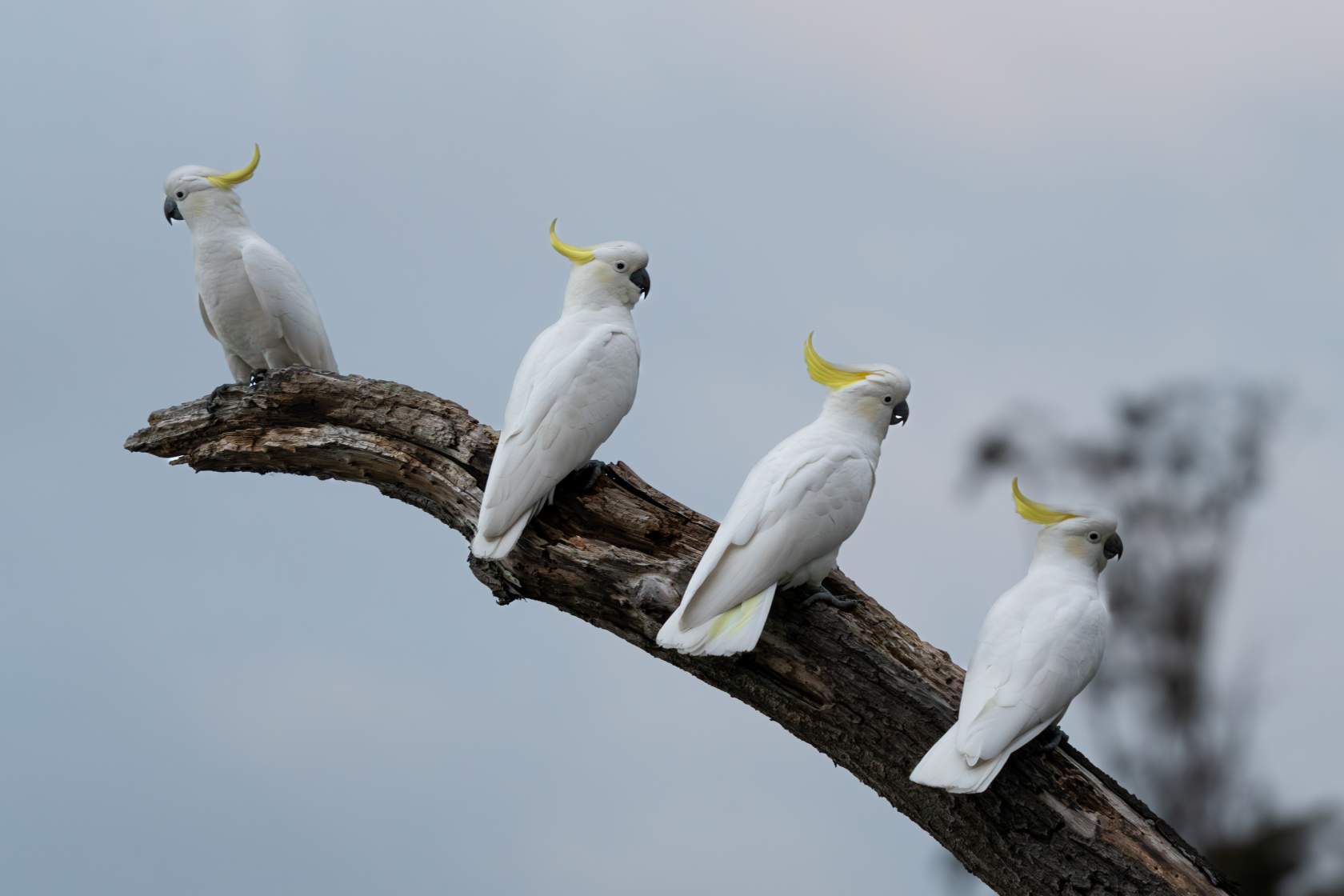
Feeding the birds: a cherished tradition, a connection to nature, or a habit doing more harm than good?
The consequences of feeding the birds in your backyard
Victoria is home to a rich diversity of native bird species and feeding them offers the reward of close-up interactions to appreciate their beauty and intelligence. However, as our environment changes and new threats emerge, we must reconsider practices that, while traditional, may no longer be sustainable or safe. So, how harmful can feeding our native birds be?
A colourful congregation or a hotspot for disease?
Supplementary feeding leads to unnaturally large congregations of birds, creating ideal conditions for disease transmission. One of the most severe threats is Psittacine Beak and Feather Disease (PBFD), which affects many parrot species - particularly sulphur-crested cockatoos. The symptoms see loss of their feathers and beak damage - it can be heartbreaking to observe. The effects are both painful and irreversible, and providing the help the bird needs can be near impossible for our volunteers as they remain highly mobile when infected. Another increasingly common issue is scaley leg from bird mites, usually a problem with domesticated birds, we are now seeing it affect passerines and corvids such as currawongs, ravens, and magpies. When advanced, the disease can severely impact their motility, beak health and ability to forage. Both conditions are incredibly contagious amongst our native birds.
In the past 5 years Wildlife Victoria has observed a 77% increase in birds reported to us suffering from diseases.
In the wild, birds wouldn’t naturally gather in such large numbers. But when consistent, low-effort food sources are provided, it creates hotspots where diseases can quickly spread through populations. At Wildlife Victoria we are finding disease outbreaks to be increasingly common

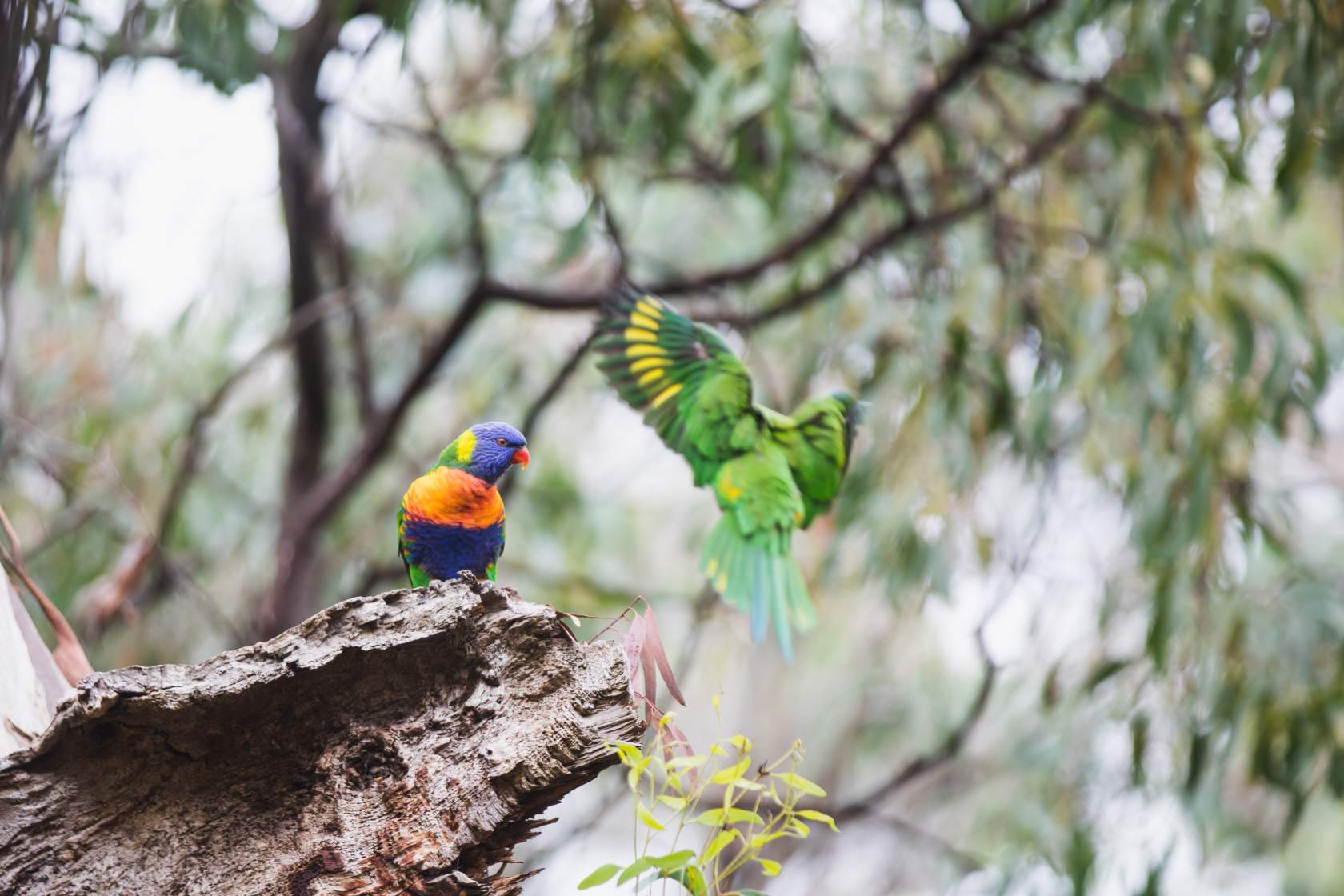
A delicate diet – do you really know what’s good for them?
Another problem arising from feeding wild birds is poor nutrition. Victoria has a diverse range of native bird species with equally diverse diets. Many people will reach for leftover foods they think the birds will enjoy, such as bread, crackers, mince or other raw meat. These foods are highly dangerous to our native bird species, with bread filling them up with very low nutritional benefit, and mince and raw meat lacking the calcium they need for good bone and beak health. The hard reality is these acts of ‘kindness’ towards native wild birds may really be killing them
Even most store-bought supplementary feed lacks the nutritional components specific native birds need and can cause serious health problems such as metabolic bone disease and oral infections. For example, we can see loss of entire beaks in magpies specifically or ‘angel wing’ in water birds, where their wings do not grow correctly. The malnutrition caused by supplementary feeding can be painful and fatal for our native birds.
An easy feed or a perfect trap?
We might enjoy bringing native birds up close for our own enjoyment, but in doing so we create a trusting feeding relationship in a space that might not be in the best interests of wildlife. Birds being attacked by pets is a leading cause for them being called into our Emergency Response Service, and in most cases it is fatal. When any wild animal is feeding, they are making a trade-off between restoring their energy supplies and being alert for nearby threats, so you will usually find them feeding in areas of shelter or high up off the ground where they feel safe from predators. By feeding the birds in our backyards we are dismantling their instinctive defensive behaviors by bringing them out into the open for our own enjoyment. This is where our native bird species become very vulnerable to nearby dogs, cats or even foxes. You might keep your pets locked safely away, but how sure are you that all your neighbours are doing the same?
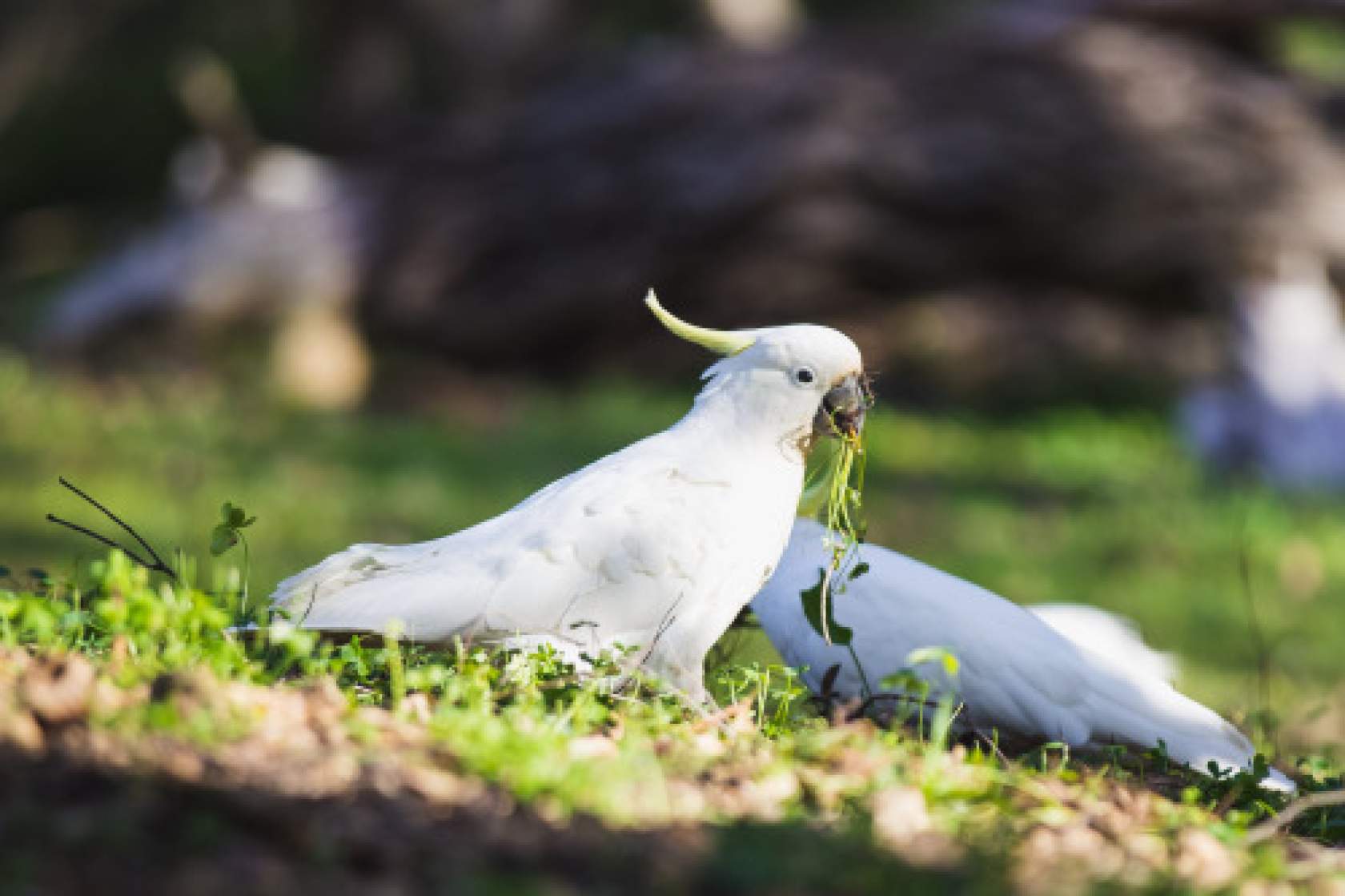
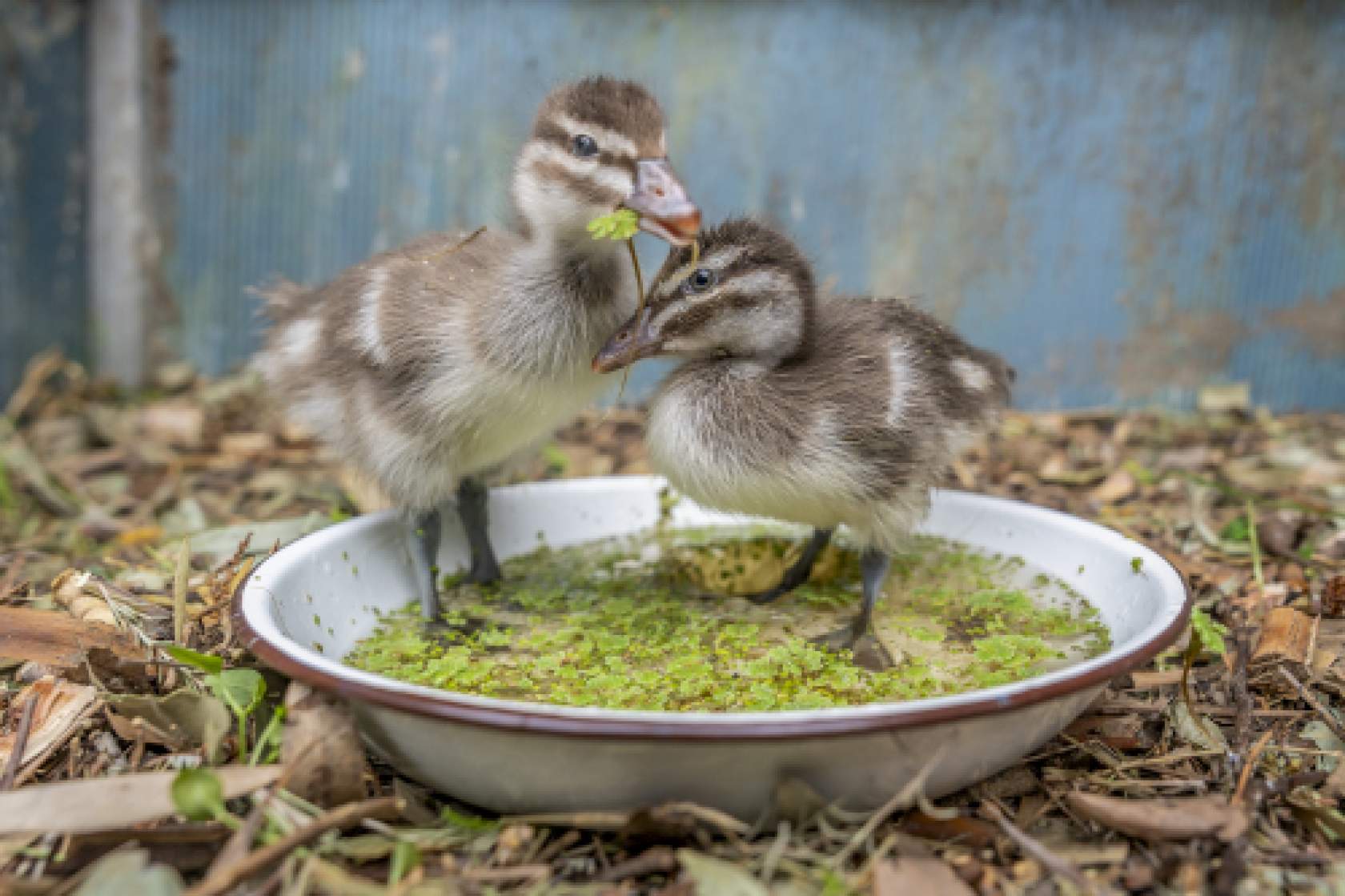
Photo by Lydia Phelan
Photo by Doug Gimesy
Domesticated and wild – where is the line?
Finally, the overarching issue of feeding wild birds is that we are crossing the boundary of what it means for an animal to be wild. Birds are highly intelligent species and they will quickly learn to favour our feeding them over the more laborious task of foraging for themselves. Especially in the case of feeding a family group that regularly visits your yard, young birds may completely forgo the process of learning to forage for themselves. This learnt reliance on our supplementary feeding can be detrimental to their survival. What if the bird family becomes displaced or you are no longer there to feed them?
How to help
It’s important to remember that our native bird species evolved long before us and developed their specialised diets over thousands of years. Our bird species do not need our help through supplementary feeding but rather through preserving their habitat and propagating an environment filled with their natural food sources.
When it’s hot outside you can help by putting a shallow dish of water out for them, just be sure to regularly clean it out. Or try planting more native flora in your yard and watch them come to feed, pollinate or nest amongst it. Even consider grabbing some binoculars and having a go at bird watching beyond your backyard – you’ll see plenty of healthy birds this way with the added benefit of getting to enjoy their remarkable behaviour.
With spring just beginning, you’ll be seeing more birds around your area than at any other time of year. You might even notice a nest in your tree or a fledgling hopping around your yard as they clumsily learn to fly. By simply letting them be you can directly help our wildlife during our busiest period of the year; lowering their risk of contracting a disease, becoming malnourished or being attacked by an animal.
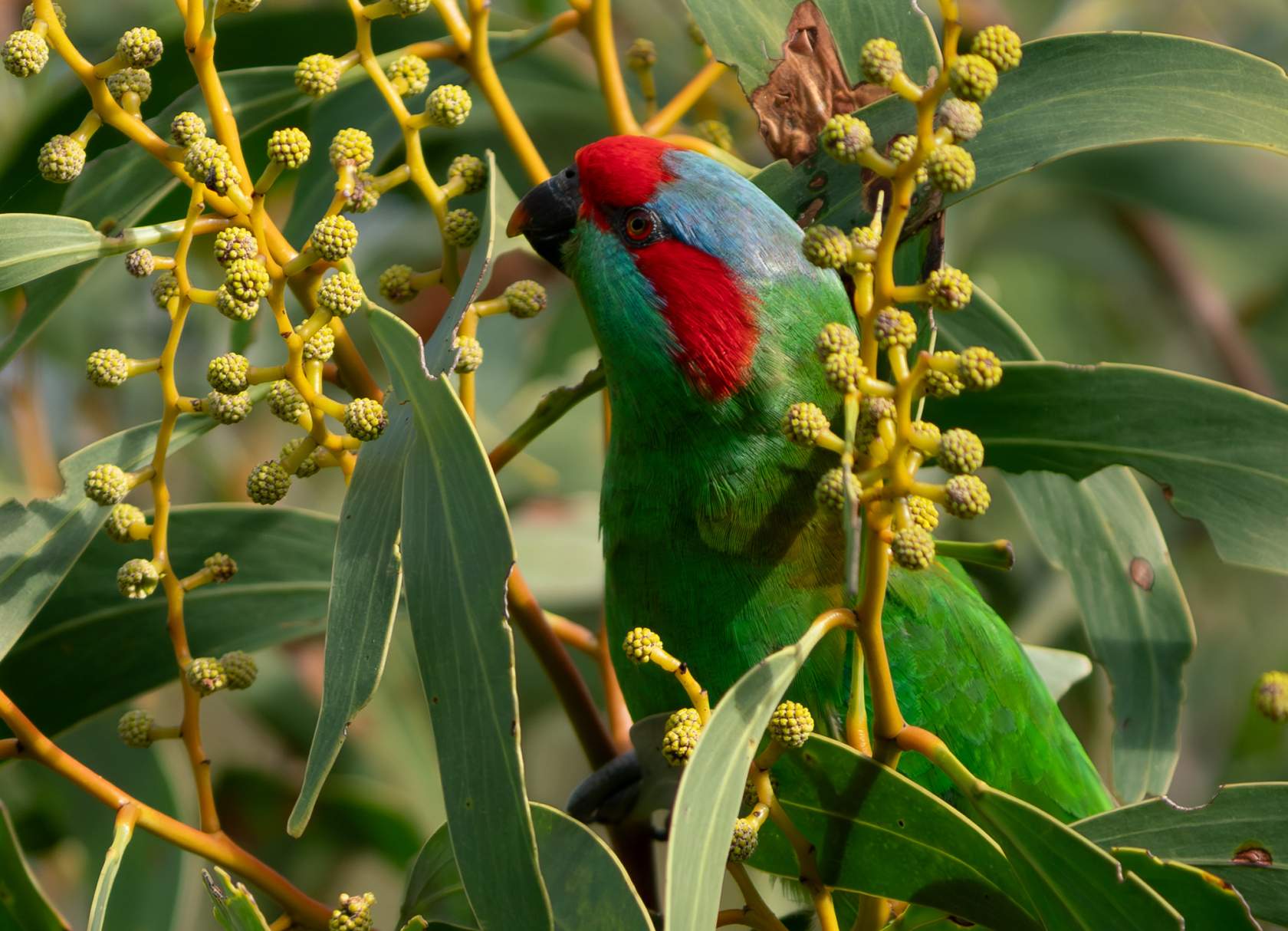
If you ever come across a native bird that might be suffering from a disease, has been attacked by an animal or appears to be orphaned or injured please call our Emergency Response Service on 03 8400 7300 immediately for help.
